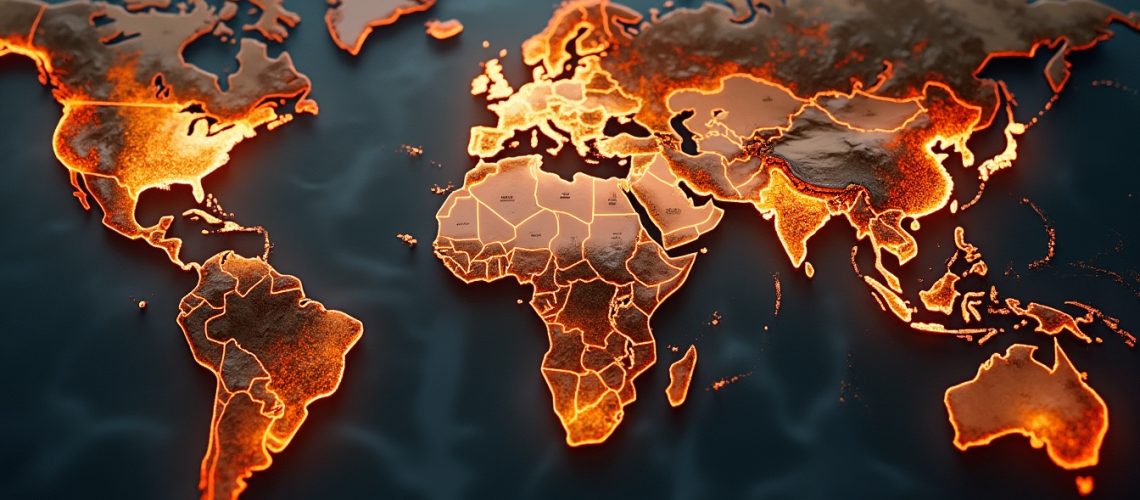Introduction
The global mineral landscape is undergoing a significant transformation as Beijing implements a critical strategy to enhance transparency and control over its overseas mining operations. This move comes at a pivotal moment of escalating geopolitical tensions, signalling China’s commitment to securing and strategically managing its critical mineral resources. As the world’s largest consumer of minerals, China’s policies have far-reaching implications for international trade and economic stability.
Why Are Mineral Reserves So Critical?
China’s recent directive to expand mineral reserves reporting represents a calculated approach to addressing global technological and economic challenges. By enhancing oversight of its overseas mineral assets, China aims to secure a stable supply of essential materials needed for its booming industries. This strategy is particularly crucial for minerals that are indispensable for cutting-edge technologies and national defence.
Expanding the List of Key Minerals
The expanded reporting requirements now encompass 41 mineral products, a substantial increase from the previous 32. Notably, the list now includes:
- Rare earth minerals
- Titanium ore
- Zircon
- Tantalum ore
- Antimony
- Non-metallic minerals: crystalline graphite, amorphous graphite, boron, fluorite
This comprehensive approach ensures that strategically important minerals are closely monitored, reflecting the government’s prioritisation of resources vital for technological advancement.
China’s Strategic Position in the Global Mineral Landscape
China’s mineral resource strategy is deeply intertwined with its global economic ambitions. The country remains a major importer of critical metals, including:
- Copper
- Aluminium
- Nickel
- Lithium
Targeted Global Investments
Through initiatives like the Belt and Road Initiative, China has significantly increased its investments in mineral-rich countries, such as:
- Democratic Republic of the Congo
- Zambia
- Peru
- Chile
- Indonesia
These investments not only secure essential resources but also expand China’s geopolitical influence. For instance, the country’s involvement in Africa’s mining sector has grown exponentially, leading to enhanced control over cobalt and lithium supplies.
Technological and Defence Implications
Critical minerals play a pivotal role in modern technological and defence sectors. Rare earth minerals are crucial for the production of:
- Smartphones
- Electric vehicles (EVs)
- Renewable energy technologies
- Advanced defence systems
Given that China controls approximately 80% of the global supply of rare earth minerals, its policies significantly impact global tech industries. The country’s dominance in this sector has raised concerns among other nations about supply chain vulnerabilities.
How Does This Affect Global Trade?
The expanded reporting requirement emerges from a collaborative effort involving:
- Ministry of Commerce
- National Bureau of Statistics
- State Administration of Foreign Exchange
This move is based on revised Statistical Rules on Foreign Direct Investment, signalling a more comprehensive approach to tracking overseas mineral resources. By increasing transparency, China is not only preparing for potential economic challenges but also strategically positioning itself in the global critical minerals market.
Moreover, China’s policies may influence global trade dynamics. For example, its critical mineral export restrictions have significant implications for international trade and investment opportunities.
Geopolitical Context and Economic Strategy
The timing of this expansion is particularly significant, coinciding with potential increased economic competition between China and the United States. By enhancing reporting requirements, China is:
- Improving transparency in overseas mining operations
- Preparing for potential economic challenges
- Strengthening its strategic position in the global critical minerals market
This strategy also reflects China’s response to market volatility and geopolitical challenges, as seen in the rare earth market volatility anticipated in 2025.
Potential Market Implications
The expanded reporting requirements are expected to:
- Provide more detailed insights into China’s global mineral holdings
- Create greater accountability in overseas mining operations
- Potentially influence global mineral trade dynamics
For global markets, this could mean increased competition for resources and a shift in pricing structures. Countries reliant on these minerals may need to seek alternative sources or invest in domestic mining capabilities.
Understanding the Broader Impact
The move goes beyond simple reporting. It represents a strategic approach to:
- Securing critical resources
- Managing global technological supply chains
- Preparing for future technological and economic challenges
China’s foresight in resource management is preparing the nation for significant transformations in industries such as electric vehicles and renewable energy. This is particularly relevant as the world moves towards green technologies, including developments like platinum-based hydrogen fuel cell vehicles.
Frequently Asked Questions
Why Are Rare Earth Minerals So Important?
Rare earth minerals are critical for advanced technologies, including:
- Electric vehicle batteries
- Smartphone components
- Renewable energy technologies
- Advanced defence systems
Their unique properties make them irreplaceable in many high-tech applications. The scarcity and geographical concentration of these minerals add to their strategic importance.
What Are the Implications for Iron Ore Imports?
China’s strategies also encompass other minerals like iron ore. Anticipated transformations and challenges in China’s iron ore imports by 2025 highlight the nation’s efforts to reduce dependency on foreign sources and stabilise supply chains.
How Will This Impact Global Supply Chains?
The reporting expansion is likely to:
- Increase transparency in mineral resource management
- Potentially reshape global supply chain dynamics
- Encourage other nations to reassess their resource strategies
Countries may need to develop new policies to ensure access to critical minerals, possibly leading to new trade agreements or partnerships.
Conclusion
China’s expanded overseas mineral reserves reporting represents a sophisticated strategy in the complex global resources landscape. By enhancing transparency and control, the country is positioning itself strategically for future technological and economic challenges.
As global demand for critical minerals continues to grow, this move demonstrates China’s proactive approach to resource management and global economic positioning. It underscores the necessity for other nations to closely monitor these developments and consider their own strategies in response.
Ready to Uncover the Next Big Mining Opportunity?
Dive into the world of mineral investing with Discovery Alert’s AI-powered real-time notifications, designed to simplify complex market insights and help you stay ahead of significant ASX discoveries. Start your 30-day free trial today and transform how you navigate the critical minerals market.







